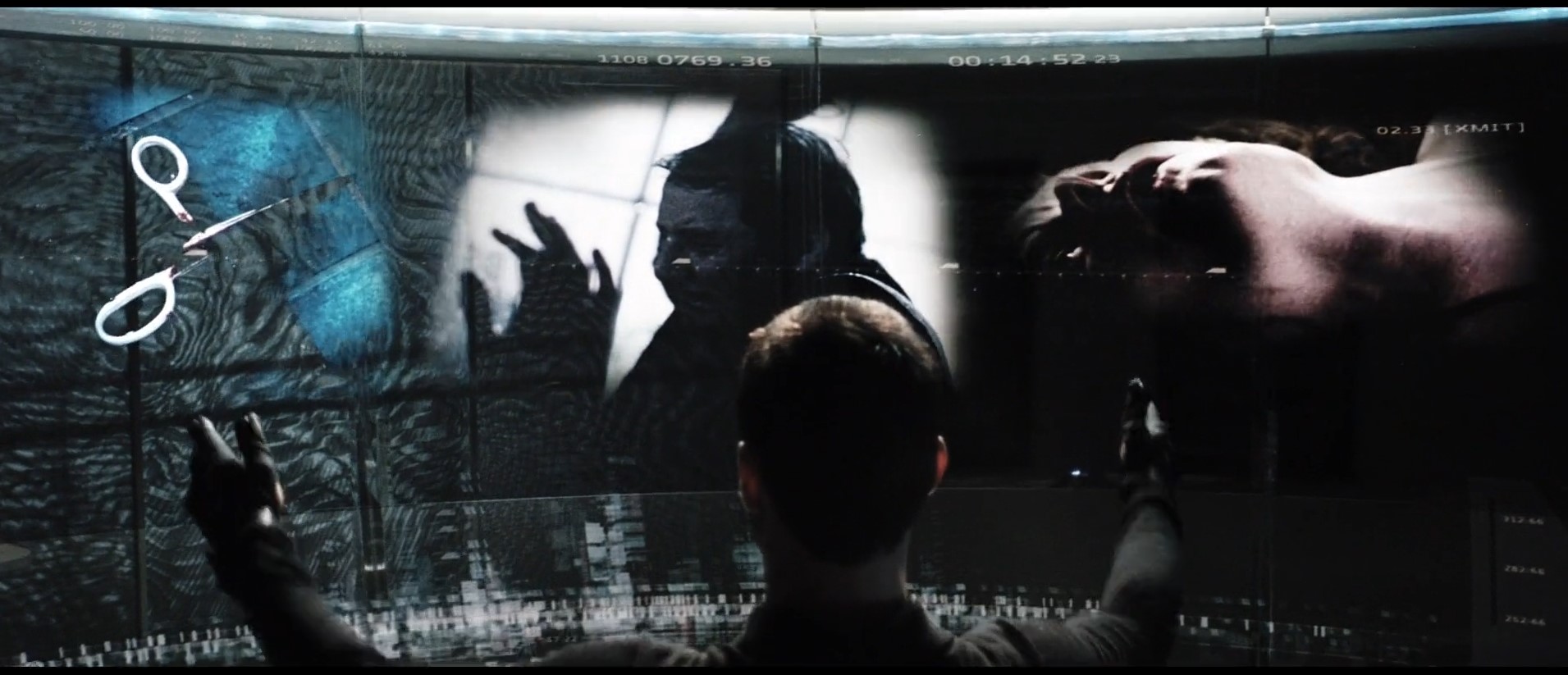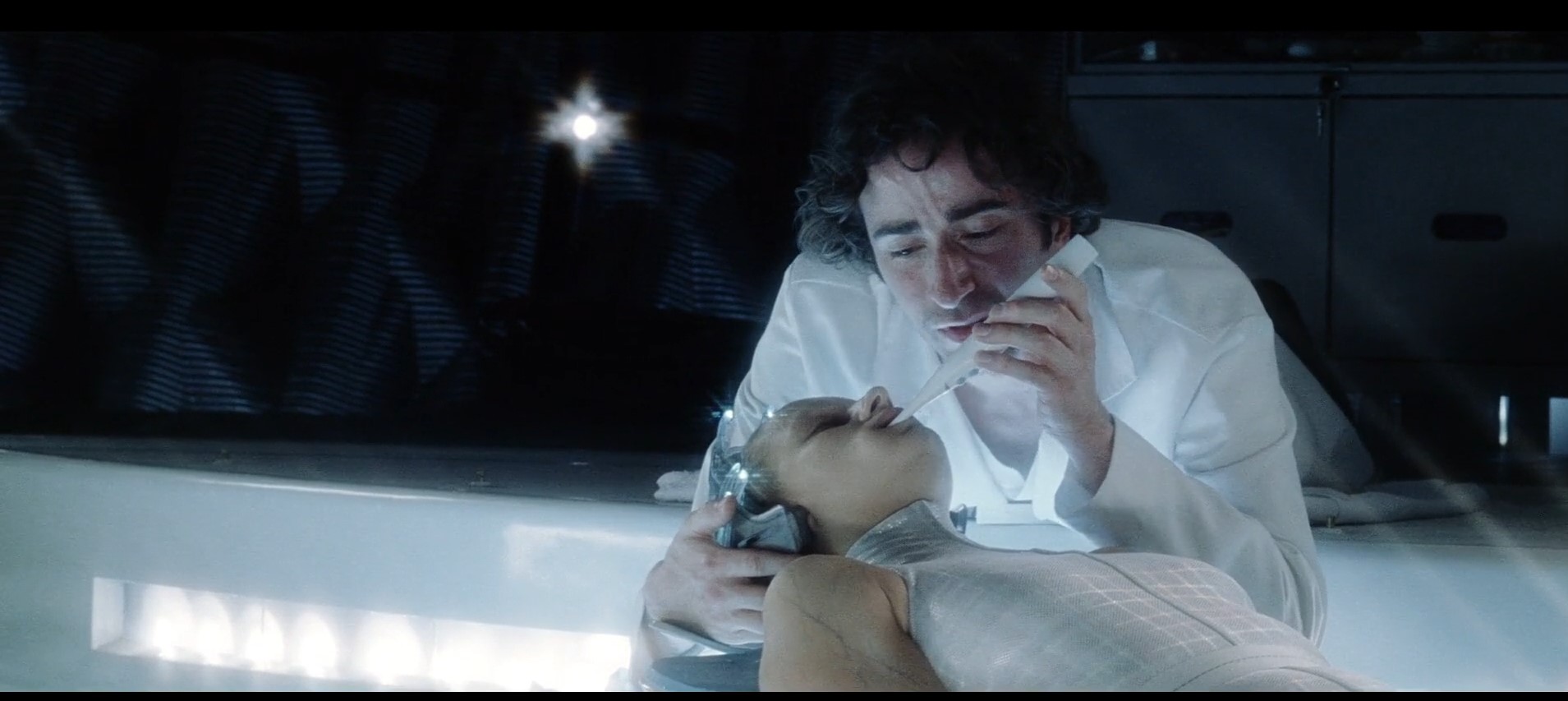Minority Report explores the morality and human free will of a system that predicts and prevents future crimes. It centers on the human rights of “criminals” arrested based on a prophecy, the principle of presumption of innocence, and our free will to change the future.
Every day, we see news of other people dying. There are many unfortunate deaths that could have been saved if we had known in advance. The movie starts with a scenario we’ve all had at least once. “If you knew about future murders in advance, could you prevent them?”
The Crime Prevention and Investigation Bureau tracks future murders seen by three seers to apprehend future criminals. They’ve been doing this for six years and have been successful, with a murder rate of 0%. The core story begins when the protagonist, a member of the Bureau, is pointed out as a suspect in the next murder. He goes on the run, claiming that I would never commit murder, and in the process discovers a flaw in the system. The prophecies are never wrong, but the three prophecies are sometimes inconsistent. However, the system is supposed to be perfect, so Minority Report is deleted. In addition, the same prophecies are often repeated, and the system’s method of judgmentally deleting similar ones means that if you target the same victim in the exact same way as the prophecy, you can get away with murder without being caught. The movie ends with the system collapsing and the three prophets returning to their normal lives.
The thoroughness and accuracy of the crime prevention system depicted in the movie is impressive, but it also raises fears about the system’s flaws. In particular, the premise that the prophecy was not wrong shows how scary the system can be. But we can’t help but question whether such a system can replace human moral judgment. Human moral judgment has been developed over hundreds of years through various events and debates, and it involves complex issues that cannot be solved by simple predictions or calculations. In the end, the movie reminds us how dangerous it can be to predict the future and that human judgment still matters.
We can’t help but wonder, “Why would you arrest someone for committing a crime in the future when they haven’t even committed a crime? The characters in the movie continue to debate whether this is right or wrong. Most importantly, it violates the principle of presumption of innocence. Article 27(4) of the Korean Constitution states that an accused or suspect is presumed innocent unless proven guilty. It shows that punishing an innocent person is less right than not punishing someone who has committed a crime. The “criminals” in this movie are criminals who may commit murder in the future, but have not yet committed murder. Arresting one person who might commit a crime could save an innocent victim. We don’t know if the victim was wronged by the criminal or if the criminal was wronged by the victim. Even if the murder is never justified, but the victim fights back after 10 years of repeated harassment and kills, he is a murderer in this worldview. He is put in a capsule without any trial. It’s like a trolley dilemma. How are we smart enough to stop this?

I also thought endlessly about what the captured “criminals” should reflect on and fix. Thinking about killing or wanting to kill is not a crime; it becomes a crime when you act on it. But they didn’t act on it, which means that reforming criminals is impossible.
The movie also made an interesting point. “The prophets are never wrong,” the proponents say, ”but the moment the Preventive Investigation Bureau stops the murders, the prophecy becomes wrong.” As it turns out, the murder didn’t happen. The prophets were wrong. If they had seen the future more accurately, they should have seen the moment the “criminals” were arrested.
The movie also raises important questions about human free will. If the future is already predetermined, are we really free to make our own choices? If the prophets get everything right, we can come to the conclusion that our choices are just part of a predetermined future. However, the movie conveys the message that human free will still matters, as the protagonist stops the murder he was about to commit at the last moment. Even though we can’t see the future, we have the ability to change it, which is one of the most important abilities we have as human beings. As such, the movie emphasizes the importance of humanity, not technology and systems, and the importance of free will in preserving that humanity.
John, the protagonist, vehemently denies that he would ever commit murder, but when he realizes that the victim is the person who “claims” to have killed his son, he does. Even though I already know that it’s not right to take personal revenge without following the laws of society, I knew how much he missed his son while watching the movie, so I couldn’t blame him for committing murder. Is there ever a justifiable murder?
“Flawed people are always flawed,” is a line that runs through the movie. The seemingly flawless ability to see and prevent murders in advance is undermined by human greed and flaws. Somehow, we find the limits of the system and kill. No matter how necessary it is, killing is essential. Human greed knows no bounds. Maybe this is the limit of capitalist society. Even in 2023, those who can see the future will be owned by those with money as soon as they are discovered. Just as in the movie, the exact future is only available to a few powerful people, so even if prophets exist in reality, most people will live in ignorance of the future. Prophecy is also the power of the few.

Naturally, the human rights of the three prophets cannot be protected. Even in this movie, they are ‘given up’ their daily lives in order to accurately make prophecies. They are superior to humans, but live a life that is less than human. It’s like the Trolley Dilemma. Is it better to sacrifice three people if the sacrifice of three people reduces the harm to humanity. Three people versus eight billion people. The movie supports the human rights of three people, but if you rationally judge the better future, you will think that it is right to side with 8 billion. 3 vs 8,000,000,000. The endless zeros after the 8 weigh heavily.
I was also struck by the scene in Minority Report where the guy who knows the existence of the system and knows its flaws goes to a party and says, ‘There won’t be any more gunshots. Is it better to reassure someone with a lie than to worry them with the truth? I’m in the camp of wanting to know the truth no matter what, but if the other person is trying to make a lie into the truth, I don’t know which is better, if they’re really trying to create a reassuring future.
“You know the future, you can change it if you want to, you have a choice.” Agatha’s words to John at the end, when he’s about to kill Leo, who she claims killed her son, make it clear that this is the centerpiece of the movie: they know the future for sure, and they can change it. For those of us who don’t know the future, I think it’s hard to be emotionally affected by this sentence. We can’t predict the next second, let alone the far future. But after watching this movie, I’m not sure that seeing the future can really bring about a better future. Maybe not knowing the future allows us to live each day more fully.
 I’m a blog writer. I want to write articles that touch people’s hearts. I love Coca-Cola, coffee, reading and traveling. I hope you find happiness through my writing.
I’m a blog writer. I want to write articles that touch people’s hearts. I love Coca-Cola, coffee, reading and traveling. I hope you find happiness through my writing.